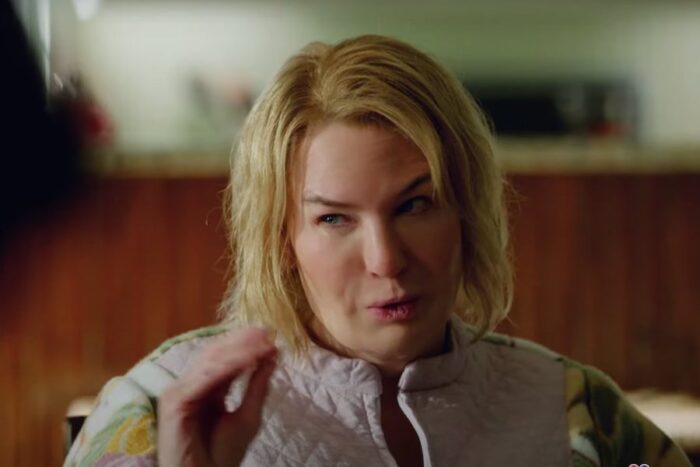True Crime Tuesdays: The Thing About Pam
Review Overview
Victim sensitivity
2Performances
8Ethics
4Helen Archer | On 30, Aug 2022
For those of us who are (perhaps overly) invested in true crime adaptations, The Thing About Pam poses something of problem. From the very outset, it’s clear that this is pastiche – the hokey narration, voiced by Dateline’s Keith Morrison, gives it away in the first few minutes, even before the over-the-top, satirical performances and dialogue kicks in. If it’s victim-sensitivity you’re looking for, prepare to be disappointed. Instead, we have a near-parody of a very real, very brutal murder in 2011, for which the titular character Pam Hupp is only now facing charges.
Adapted from a Dateline podcast, Renée Zellweger plays Pam, a friend of the late Betsy Faria (Katy Mixon) and the last person to see her alive after she dropped her off at her home two days after Christmas in 2011. Betsy was later found with 55 stab wounds by her husband Russ, who quickly became the lead suspect in the killing and was convicted for it in 2013, before being exonerated in 2015. Pam’s scheming and machinations were instrumental in his conviction, but she was, too, backed by a seemingly corrupt system, where personal connections between the prosecutor, sheriffs and judge clouded any kind of justice. Instead, Pam was able to convince her community that Russ was an abuser capable of the heinous crime. In doing so, she shattered a family.
While much of the programme could be described as a character study, it’s more of a caricature. Zellweger’s performance is overblown yet terrifying in its portrayal of a full-blown sociopathic narcissist whose venality and grandiosity is all-encompassing. No one is safe from her, and she becomes ever more sinister as the series goes on – terrorising her friends, family and neighbours, a curse on anyone who was unfortunate enough to encounter her. And yet, although some of her background is examined – her relationship with her mother and her daughter is given some airtime, though with fairly broad brushstrokes – she is never more than an impersonation of a monster, with little here to explain what made her the way she is.
The programme is, perhaps, better at depicting the small town life of Troy, Missouri, than anything else, as Pam finds herself first protected, then rejected by the community. Judy Greer as Leah Askey – an unscrupulous attorney, who stitched up Russ without a qualm, only to find herself irrevocably connected to Pam – is coldness personified. Gideon Aldon as Pam’s daughter Mariah brings some much-needed emotion to her part, as one of the first people to see Pam for what she is, only to be tormented for it. Josh Duhamel plays Russ’s attorney as a stand-up truth-seeker, while Glenn Fleshler plays Russ as a resigned dupe, ruined by the venomous actions of one woman.
But it’s Zellweger’s performance that this all hangs on, because much of the time we are seeing things through her eyes. Fantasy sequences demonstrate the way in which she views both herself and the world around her, from the very outset. Even her last conversations with Betsy are shown multiple times, as she concocts her story and puppet-masters her victim, so that we never get an idea of what exactly happened – Betsy herself is presented in the way Pam wants her to be, so that the horror of that night is cloaked in a self-serving narrative. As a character, she barely gets a look in, consigned as she is to not only being a murder victim, but also being seen through the eyes of her murderer. Pam’s final victim, Louis Gumpenberger, is likewise given short shrift, despite the programme pointing out that his family were upset when Pam pleaded guilty to his murder, robbing them of the opportunity to find out the whys and wherefores of his death.
In fairness, had Pam taken the stand, it’s unlikely they would be any the wiser. If the series demonstrates anything, it’s that Hupp was wholly unconcerned by other peoples’ grief. A consummate liar and performer, she was never going to take responsibility for any of her actions. As frustrating as that must be for the bereaved families, it’s also unclear how they must now feel at their torment being played for laughs.
















